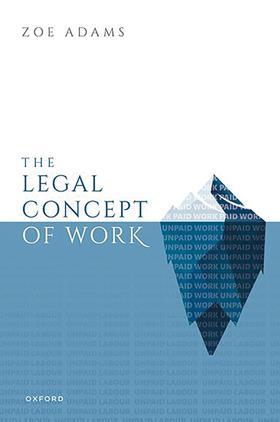Working 9 to 5 – only one way to make a living
The Legal Concept of Work
Zoe Adams
£110, Oxford University Press
★★★✩✩
What is work? We all have to do it but what exactly is it and how does the law affect it? Where does it start and end? A solicitor’s office hours may be 9 to 5 but he or she will often come in early and stay late, take files home and answer emails and phone calls 24/7. If they then chat to a neighbour about what work they do and the neighbour’s friend comes to them with a legal issue, is that work as well? If you are employed then you might wonder if you are entitled to have a life outside work.
The legal world of work is changing. We are in the middle of multiple strikes; many are employed in the ‘gig economy’; there is a shortage of skilled labour; people are unwilling to train; others are affected by Covid; and many key workers are undervalued.
This is an academic study of the interaction between work and the law. How society has regulated different types of work and why. Labour law by definition is a struggle between often opposing parties with different agendas. This book discusses the function of work, how the law intervenes and why, work and time, management, ‘non-work’, and gender issues. It ends with in-depth investigation of specific areas, such as creative writing, academic work, the medical professions and the retail industry.

I would have been interested in a specific analysis of the legal profession. Many of us have privately funded and publicly funded work and some are employed in part-time jobs as well. What is our legal position with regard to publicly funded work? We are not employed but subject to considerable restrictions on where and how we practise. Arguably, the Legal Aid Agency is a hard taskmaster.
I found the historical analysis interesting. In the medieval period, there was no concept of hours of work. In 1495, legislation was introduced to deal with workers ‘in late coming into their work... long sitting at their meals… [and] sleeping after noon’. The act fixed the working day from 5am to seven or eight at night, with two and half hours for meals, and a sleep in the summer.
Much discussion in this book is about extra, unpaid work which employers expect and do not always reward. These unpaid duties include workers who sleep in overnight at nursing homes, and the gig economy when people are kept on call waiting for work (both of which have led to litigation).
Workers probably have always felt they are underpaid and employers think the opposite. It is interesting that it was the aftermath of a pandemic which altered the legal world of work. The Black Death led to a shortage of labour and workers were able to demand high pay. The government soon introduced legislation to keep wages low.
This interesting subject affects us all, either as employers or employees. What is the future of work? How do we plan workforce requirements in terms of training and recruitment? How do we value workers or reward effort? This is directly relevant to our profession, which does not always seem to value our work.
David Pickup is a partner at Pickup & Scott Solicitors, Aylesbury































No comments yet